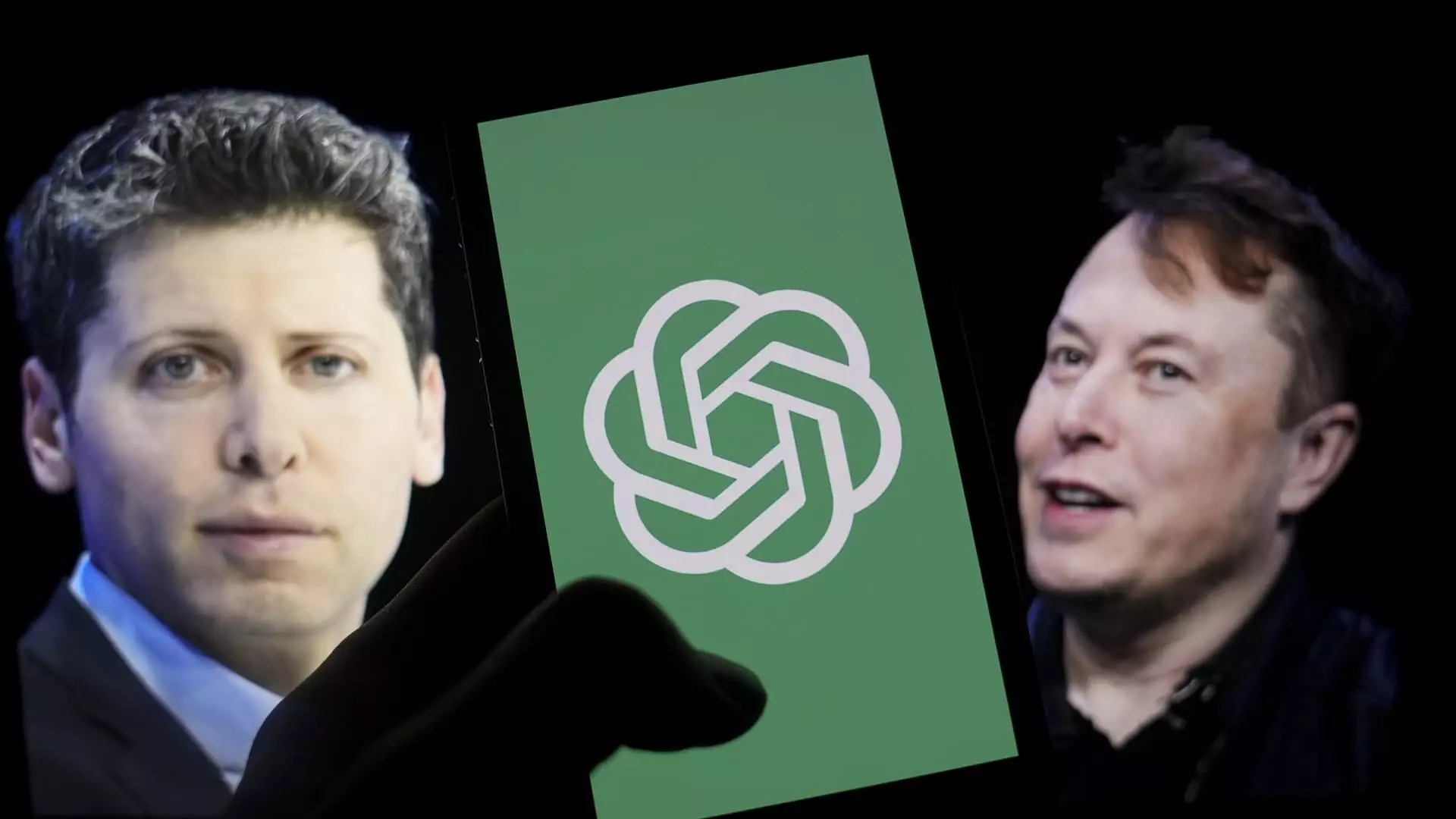Elon Musk, a name synonymous with innovation and controversy, has ignited yet another legal battle, this time targeting OpenAI. The crux of the matter lies in Musk’s objection to OpenAI’s transition from a non-profit to a fully for-profit entity. Through legal channels, Musk, alongside his AI startup xAI and former OpenAI board member Shivon Zilis, has made a bold move by filing for a preliminary injunction against the tech giant. This escalated legal dispute represents not just a clash of interests but a critical intersection of ethics, competition, and the burgeoning field of artificial intelligence (AI).
The lawsuit, initiated by Musk’s legal team, is deeply rooted in allegations of unfair practices. The crux of Musk’s argument hinges on claims that OpenAI has engaged in activities that violate federal racketeering laws, particularly under the RICO statutes. Musk’s attorneys contend that OpenAI’s recent actions have extended beyond competitive marketing to include antitrust violations, suggesting that the organization has disallowed investors from funding rival AI ventures, specifically targeting Musk’s own xAI. This allegation adds a layer of complexity to the ongoing competition within the AI space, where access to funding can determine a company’s fate.
In their legal filings, Musk’s counsel asserts that OpenAI’s moves to cement funding arrangements with investors while simultaneously inhibiting rival startups from gathering capital creates an unfair marketplace. The legal jargon—describing OpenAI’s tactics as akin to a “group boycott”—underscores the seriousness of these claims. By restricting investment capital from flowing to competitors like xAI, OpenAI is charged with creating a monopolistic environment in the AI domain.
The Dynamics of Investment in AI
The legal tussle is set against a backdrop of rapid innovation and significant financial investment in the AI industry. OpenAI has emerged as a powerhouse in recent years, propelled by the success of tools like ChatGPT, which have spurred endless corporate interest and investment in artificial intelligence. Musk’s xAI, launched in July 2023, aims to disrupt this landscape. With aspirations to raise $6 billion at a staggering $50 billion valuation, xAI is positioned to be a serious contender. It has already rolled out its Grok chatbot, further intensifying competition within an already crowded market.
Microsoft, a notable backer of OpenAI with investments nearing $14 billion, complicates the narrative. Although Microsoft downplayed the involvement following a suggestion of unethical coordination between OpenAI and its board, the stakes are undeniably high. Microsoft’s shifting role, including its recent withdrawal from an observer seat on OpenAI’s board, raises questions about the influence big tech companies wield over emerging AI players.
The Implications of OpenAI’s For-Profit Shift
OpenAI’s quest for a fully for-profit status invites scrutiny not only from competitors like Musk but also from regulatory bodies. Initially established as a non-profit in 2015, OpenAI’s 2019 shift to a capped-profit model created a unique legal framework that has now become a subject of contention. The transition to a public benefit corporation—an attempt to boost investor appeal—has spurred allegations of ethical lapses and anti-competitive behavior.
Critics have pointed out that this structural change may compromise OpenAI’s mission to benefit humanity, raising essential questions regarding accountability and the ethical responsibilities of AI developers.
As the legal confrontation between Musk and OpenAI develops, its ramifications extend beyond corporate rivalries, hinting at a larger narrative surrounding AI governance. The Federal Trade Commission (FTC) has hinted at potential investigations into the relationships between major cloud service providers and AI developers, demonstrating a keen interest in understanding market dynamics and maintaining fair competition.
Furthermore, the rapidly growing generative AI market, poised to generate over $1 trillion in revenue soon, emboldens the position of startups seeking to carve a niche among established giants like OpenAI. Musk’s legal actions may serve as a rallying cry for those concerned about monopolistic trends in the tech sector, igniting discourse on ethical practices in an industry that is progressively becoming a cornerstone of modern innovation.
Elon Musk’s strategic legal moves against OpenAI serve as a reminder of the intricate interplay between competition, innovation, and ethics in the AI sector. As this showdown unfolds, stakeholders—ranging from investors to policymakers—must remain attentive to the implications and the inherent responsibilities that accompany advancements in technology. Whether Musk’s legal maneuvers will reshape the AI landscape remains to be seen, but what is clear is that the conversation around ethical governance and competitive fairness in AI is just beginning.

